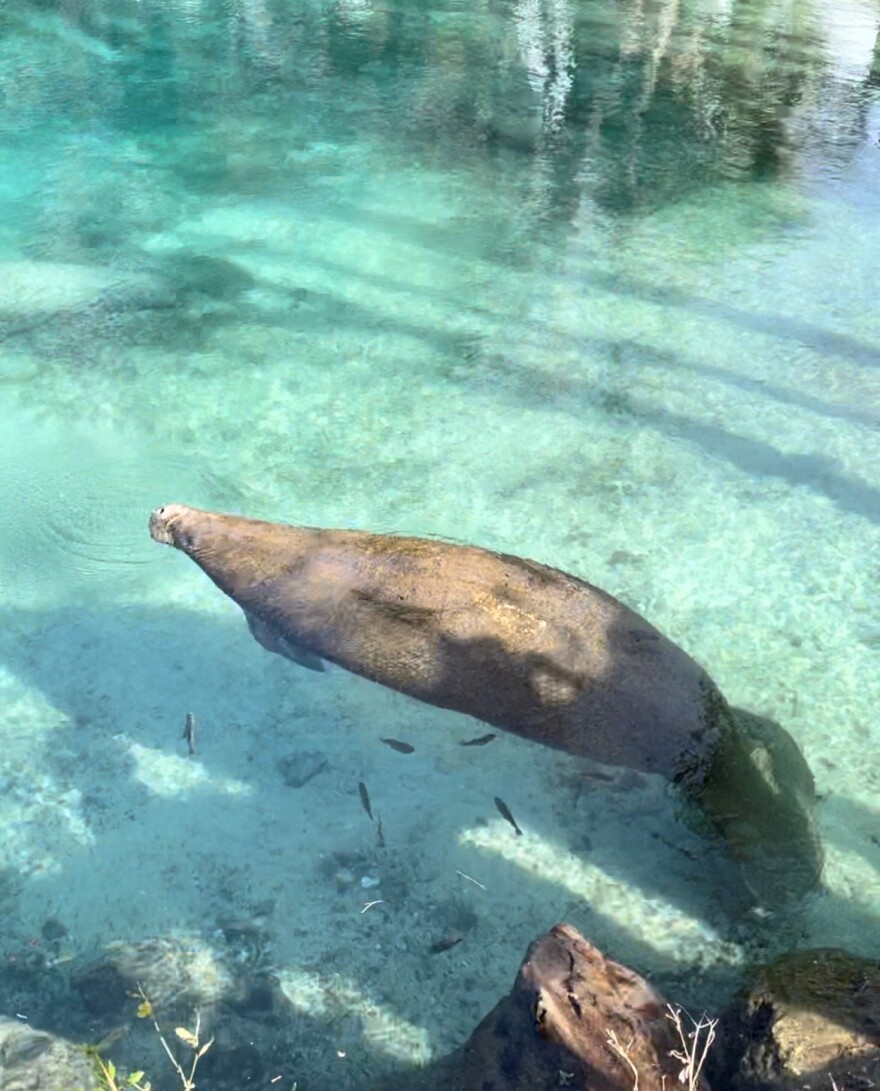The full Florida Senate okayed a bill Wednesday aimed at addressing the state’s alarming rate of seagrass loss and record breaking manatee deaths.
Florida's waterways and manatees have been making national headlines lately. Good Morning America visited Crystal River in West Florida earlier this month. to highlight efforts to restore the sea cow's habitat. St. Rep. Lindsay Cross (R-St. Petersburg) is glad to see the issue getting attention.
Cross, an environmental scientist, and says seagrass plays an important role—especially in coastal estuary systems.
"Our estuaries are where the young fish, they’re often called nursery areas, the young fish come and live in these areas. Particularly in the more protected sheltered seagrass areas, so they serve as very important habitat," Cross says.
The underwater plant also serves as a primary food source for the Florida Manatee.
The Indian River Lagoon which spans across seven counties of Florida’s east coast has lost almost 60 percent of its seagrass. This habitat loss is causing record breaking manatee deaths. 2021 and 2022 were the worst two years recorded for manatee mortalities, with more than 2,000 manatees deaths reported in the two years combined. The overwhelming reported cause of death was chronic starvation and malnutrition.
Sen. Jim Boyd (R-Badenton) is sponsoring the bill passed out of the Senate Wednesday that would create a partnership among scientific and government organizations to develop a 10-year seagrass restoration plan.
"It will be kind of a work in progress to see exactly what we’re not doing that we could be doing and what should be done to protect the seagrass," Boyd says.
Boyd’s bill along with a House companion will allocate $2-million to the Department of Environmental Protection through 2028 to develop a comprehensive plan on how to regrow and restore seagrass habitats.
Cross is happy lawmakers in Tallahassee are aware of the issue but she has some concerns about the legislation. She says the underlying problem needs to be addressed first.
“The only true way to restore seagrass is first to have clean enough water and then to work on some specific techniques that may be specific to that local estuary or that local water body," Cross says.
Harmful algal blooms and pollutant runoff have greatly reduced water quality in areas around the state including the Indian River Lagoon. With a $26-billion infrastructure budget Cross would like to see the state allocate more funding to making sure an increasing population isn’t leaving a harmful footprint.
“I don’t think we’re doing a good enough job of ensuring that we are offsetting the new pollution while we’re still trying to fix the mistakes from the past," Cross says.
With bipartisan support for legislation aimed at improving environmental issues, Boyd believes protecting Florida’s natural resources is something both sides of the aisle can work on together.
"That said sometimes we have different ideas on how to do that of course," Boys says. "Hopefully the best ideas win at the end of the day but that’s something I think we all agree on.”
The House version is ready for a hearing before the full chamber.





